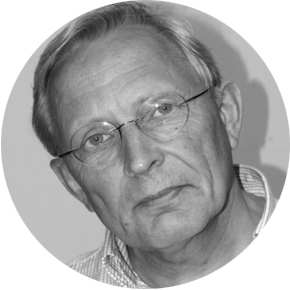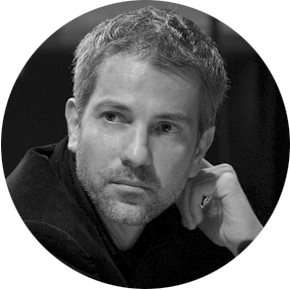The Ministry of Education, Science, Culture and Sport of Armenia has launched the revision of national and subject norms of general education.
A group of local and foreign experts will prepare the report establishing the school subjects, grading system, teaching methods, main curriculum, and the knowledge that students must possess by the time they graduate.
Mediamax has sat down with Secretary General of EuroScience, science expert Peter Tindemans to discuss the teaching of exact sciences.
- I know that before your arrival to Armenia you have managed to study the education system of our country. Which primary problems do you noticed that need to be solved?
- Before our mission to Armenia in late May we had been given a lot of information by the World Bank and the counterpart in Armenia, so we do have quite a bit of information and we noticed that there are a couple of serious problems with the educational system. One of them is the quality of education: the quality is still low, and that reflects in the scores which Armenian schools get in the international rankings. If you look closely at them, Armenia ranks very low. It’s impossible to have rating this low if the quality of teachers is high, so the quality of teachers is also low in Armenia.
The system is built in such a way that students basically are aimed from taking STEM courses and that is not good. Everyone should be exposed at least to some extent to biology, physics, chemistry, etc. Another point we noticed is that there is duplication. Assessment is also something that should be done in a more professional way.
What I noticed in the interviews with senior sociologists in Armenia, and it is something we observe in many countries, there is a big difference between the capital and the countryside in terms of teachers, availability and quality of teachers, in terms of what practices you should have, etc. So, there are a whole lot of problems which should be tackled and we are glad to see that the Armenian government wants to actually do something about that.
- Subjects like social sciences, sociology and others that have strong connection with our everyday life require the curriculum to be regularly reviewed and republished, but it seems like science doesn’t give the same opportunity to change the content. When we say ‘develop curriculum’, what does it mean for STEM subjects?
- There are two parts in the answer to that. First, I don’t think it is actually true that subjects in STEM, in science in particular are not subject to changes. There is a strong link between these subjects in science and what is happening in the society. For example, what has been happening in biology in the past 50 years is enormous, what we know about genetics as compared to what we thought 50 years ago has major influence on the way we deal with medicine. There is also major impact from biology on society and the other way around. The same is true for climate change, which is a huge societal concern. Physics and chemistry in particular have taught us a lot in terms of climate change. There is a lot of connection between sciences such as biology, physics and chemistry and what is happening in the society, in the environment where we all live.
The second part of the answer has to do with how you build the science curricula. I have mentioned that the quality is not high enough, there is duplication, etc, and it is something which countries have learned to tackle in different ways. One way is you have to look – and that is something we have been discussing in Yerevan – you have to look at the curriculum in a comprehensive way. You have to look at grades from 1 to 12 and think how you can build curriculum in such a way that students from age 7-8 to age 18 get a succession of information on all the topics they have to study. That means that you start, for example, with children observing the environment, until they learn the details of physics, chemistry or biology in grade 12. That is what is happening now in Armenia, and that is what many countries have learned and built up their science curricula in a very structured way.
If you look at the curriculum currently in Armenia, you will observe that it has a lot of topics – in physics, chemistry, mathematics, biology – but they are there in a very unstructured way, and you could even say there are too many of them. What the countries have learned, the United States and many European countries, also Hong Kong and Singapore which have been leading us in that direction, is that less is more. It’s better to concentrate on basics in physics, chemistry or biology than just select all sorts of topics. There is an idea which has been adopted in many countries, which is called “core disciplinary ideas”, which means that you select many 5-6 core ideas and then start developing them in the curriculum from grade 1 to grade 12. It is basically repetition but an increasingly complex one. That is the way people have learned to interest pupils in science and also to teach them the basic ideas, and then they can start developing their own skills by looking around on what’s available on internet, etc. But you have to tell them the structure of science. You have to teach physics and chemistry and biology in the context of what people witness, experience in their daily lives. It is much more involving, it teaches them things which they really see around. You have to change the curriculum also in science fields to give students much better experience than what they are taught in this instance in schools.
- As a student, I often got an impression that STEM was only for especially clever children. How can we change the approach to make STEM more interesting and less “terrible”?
- It’s an impression that has also been created in many countries where education is now at a higher level. Of course, there are always students with special abilities, it’s true for languages and history as well. I don’t think there’s any doubt that any child can learn some of the basic ideas about chemistry, math, physics and biology. You have to make sure that pupils understand it is not about pieces of knowledge; there’s something which relates to what is happening in the society and their environment. The advantage of the internet now is that you can look up people, who invest a lot of their time into making science subjects interesting for young children. I know a man, who used Harry Potter themes in chemistry experiments to show to children aged 3-6 how amazing chemistry, physics, science can be. There are many scientists who are willing to invest their time in getting children to understand the beauty and the fun of science. I’m sure it’s possible for the Armenian government to get scientists in Armenia, Armenian scientists in Diaspora to make things that can be a major impetus in getting children interested in science.
- According to Armenian experts, fewer students want to become STEM teachers in Armenia. Do we have the same picture globally? What should be done to attract more young people to science and motivate them?
One way is to show how interesting, amazing, how fun it is to do science. Secondly, the government has to invest in policies which attract people to the job of a teacher. That has to do with salaries, which is an issue in many countries. In Finland, which is well-known for its very high level of science education, teachers in primary and secondary schools are paid as much as teachers in the university. That’s an important thing, because it contributes to the fact that teachers in primary schools have a high self-esteem, which makes it attractive to become a teacher in the primary school. That’s not the case in other countries, where primary school teachers are paid much less than teachers in the university. So, the policy of the government to award teachers with salaries and social measures of esteem is very important.
I’ve been working in Uganda a long time ago, and what we did in that country was that we had a program of getting young university professors go out in the country and visit secondary school. They just discussed with children and their teachers what modern education is about. All these things are important to attract children to science, but also tell people that look, it’s very interesting to be a teacher, whether in primary school or university, because it’s one of the ways in which you contribute to the future of your society. You educate people, teach them things that are necessary for all sorts of jobs in all areas of society.
Companies can do a lot in that sense as well. In my country, the Netherlands, we had a policy in which companies together with schools and the government worked on making children interested in science by offering them exhibitions in companies and excursions to come and see how science is actually used in practice, so that is a comprehensive approach you can undertake to get children interested in science and also show how relevant and important for science teaching is.
Lusine Gharibyan talked to Peter Tindemans





















